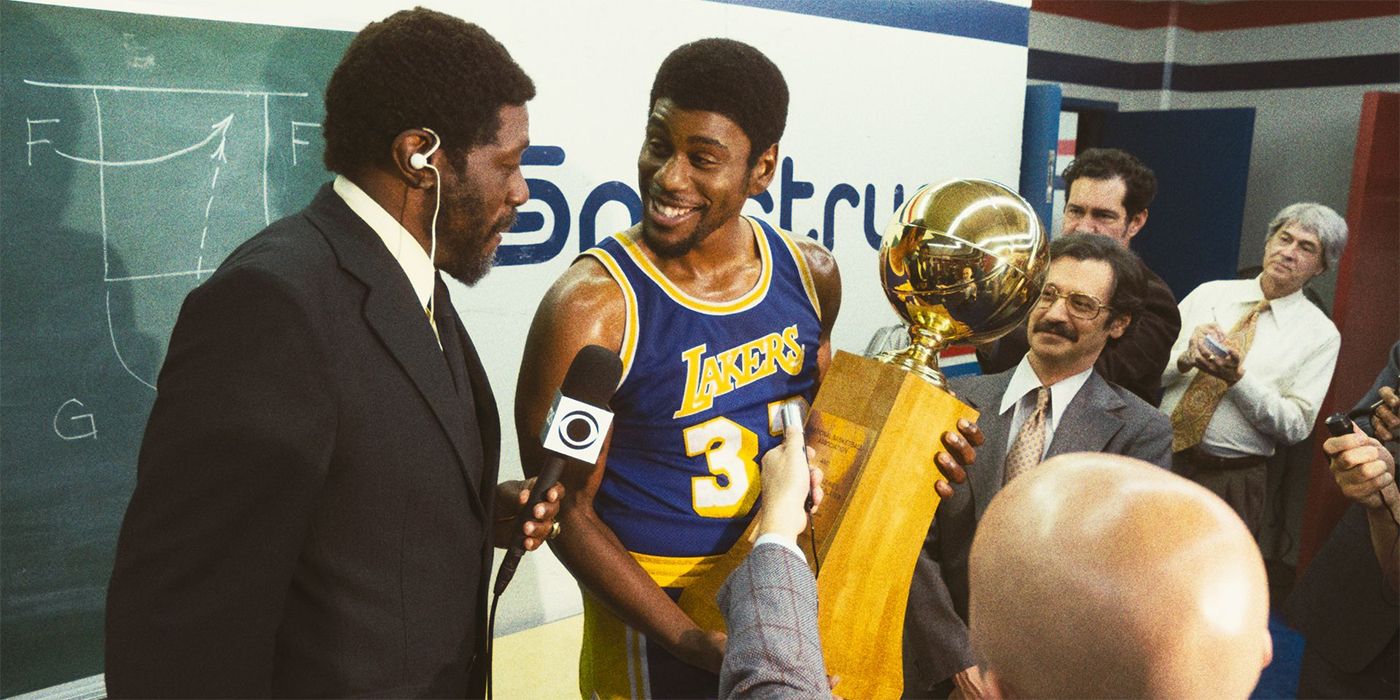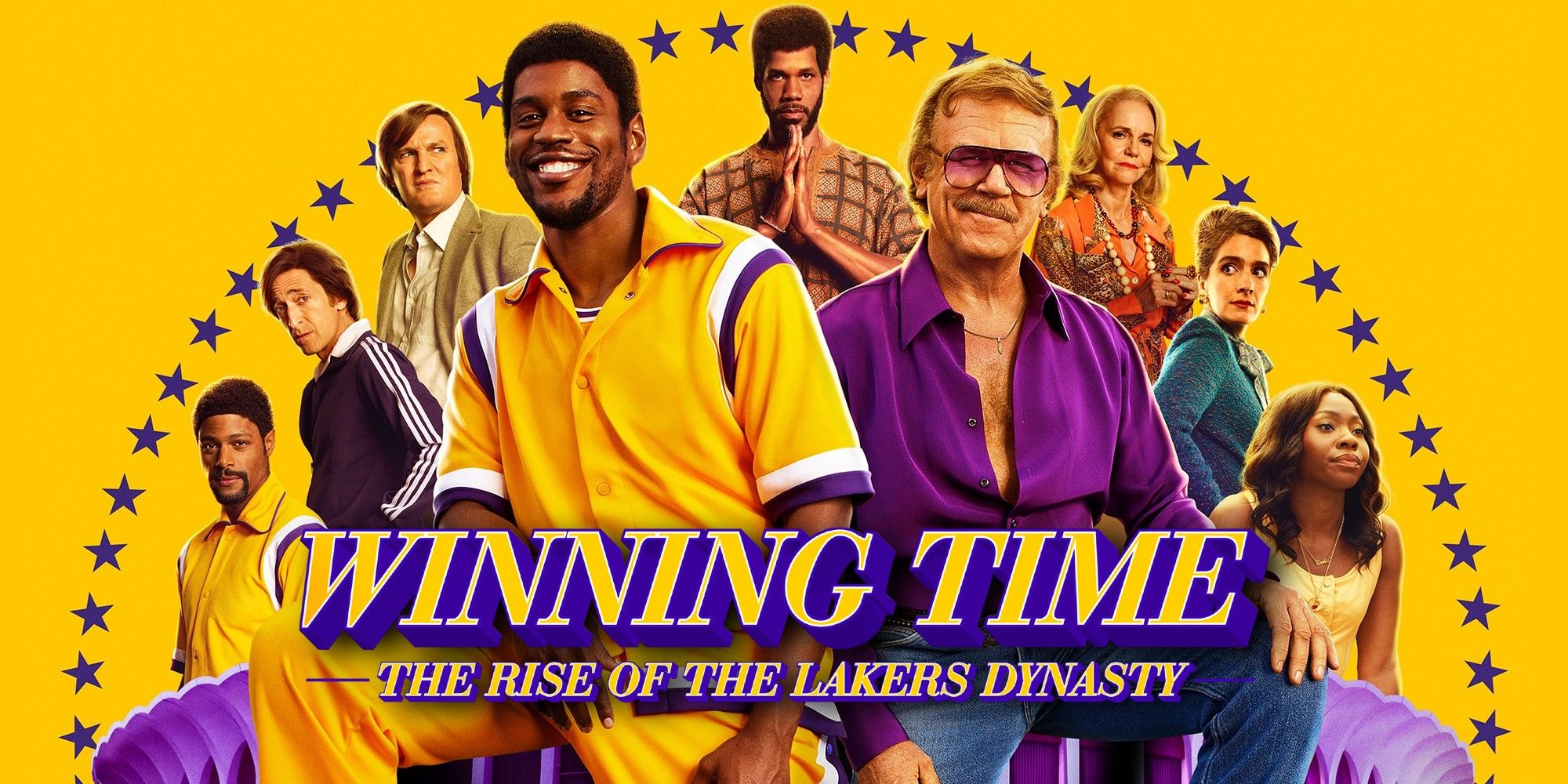Winning Time: The Rise of the Lakers Dynasty season 1 concludes with a thrilling victory in the 1979–1980 season championship. After Jerry Buss’ remarkable success in his first year as Lakers owner and Magic Johnson’s incredible rookie performance, the team is eager to face their rivals, the Boston Celtics, and bring home another trophy. But as the rivalry intensifies, particularly between Magic Johnson and Larry Bird, the Lakers will encounter new challenges both on and off the court.
Winning Time boasts an impressive ensemble cast featuring John C. Reilly, Quincy Isaiah, Jason Clarke, Adrien Brody, Gaby Hoffmann, Tracy Letts, Jason Segel, Solomon Hughes, and Tamera Tomakili. Created by Max Borenstein and Jim Hecht, Winning Time is based on the Jeff Pearlman book Showtime: Magic, Kareem, Riley, and the Los Angeles Lakers Dynasty of the 1980s. While the series faced controversy over its portrayal of real people, it was also one of the most buzzed-about shows last year.
Winning Time season 2 stars Jason Segel and Solomon Hughes recently sat down with FilmmakerFocus to discuss the upcoming season. Segel shared insights into how the previous season’s championship win impacts Paul Westhead and The System, while Hughes talked about the changes in Kareem Abdul-Jabbar’s character due to fatherhood and his preparation for the basketball scenes in the series. Note: This interview was conducted before the SAG-AFTRA strike, and the show covered here would not exist without the labor of writers and actors in WGA and SAG-AFTRA unions.
Jason Segel & Solomon Hughes on Winning Time Season 2
FilmmakerFocus: I’ve been eagerly awaiting this season, and I must say, it exceeded all my expectations. I absolutely love this show. The team’s championship win in the previous season was a moment of pure joy and triumph.
In the last season, how has winning affected Paul Westhead this season?
Jason Segel: Yeah, I think that Paul Westhead had a really unexpected triumph in season 1, and did something that he never thought he was going to be able to accomplish, and season 2 is about if he has what it takes to handle that with grace and dignity, because that’s a whole other part of this equation. And yeah, you watch him have this power struggle with a few people, because it’s not easy to win, it turns out.
Solomon, I think you’re amazing as Kareem. There’s a such a great scene that you have with Jerry Buss, where he kind of breaks down this lifetime contract situation. Can you talk to me about Kareem’s view of the organization during the course of the season, and how that kind of shifts and changes?
Solomon Hughes: Sure, it’s the ’80s and ushers in this era of stars, and the game is becoming more popular, the money is getting bigger. So, I think, he’s kind of someone of the old guard, he’s experiencing these changes. This new kind of owner, Jerry Buss, is a totally different owner than what he’d experienced, or what the NBA experienced. So, I think there’s this tension there, right in that scene, it really kind of just spills out.
A lot of things that he’s been kind of holding to his heart, or that he was kind of figuring out for himself. So, I think there’s all these collisions in the show right? Collisions in different philosophies, and perspectives around eras, etc, and so I think that’s a major one. You have this player who was a classic NBA player and this brand new kind of NBA owner, and having it out in a skating rink.
Jason, I feel like The System really benefits Kareem’s style of play, especially at this stage of his career. Can you talk to me a little bit about when Paul Westhead installed The System into the Lakers?
Jason Segel: Yes, and forgive me if my memory is a little bit foggy, but I actually think that The System really came into place after Kareem got injured for a bit, right? And it was about shooting, it was about shooting as soon
As you catch the ball, no dribbling, the more shots you take, the more likely you’re to make them, and everyone thought it was crazy.
In today’s NBA, they are in a lot of ways, now that it’s become the three-point game, running versions of The System all over, like those Warriors. They’re doing a lot of movement, but there’s a lot of shooting, so maybe Paul was before his time, I don’t know. He actually had success with The System in some of his other coaching, it’s just not in the NBA.
I think he coached LMU, and they put up the most points in NCAA at the time in history.
Jason Segel: Yes, and I think he ran it in Japan, as well, and it went pretty well, I could be wrong.
Solomon, I think the basketball scenes in this show are phenomenal. I know what happens in the games, but it takes you right there inside, and you really get a feel for what the players were going through. Can you talk about the preparation you guys do for those scenes?
Solomon Hughes: Sure, yeah, there’s obviously a lot of training, and a lot of choreography. So, we would figure out what we wanted to shoot, basketball-wise, and then it was just reps, basically. Getting in the practice gyms, and kind of going through it with the incredible group of background basketball players who showed up and just gave their all every time. And we were blessed, we were working with background guys who would play in the NBA, so like real, amazing basketball players.
So, all of that and then you match that with the way that this set is designed, and then the incredible camera work, where you sometimes have somebody on roller blades where they’re just trying to get as many different angles as possible. I think it was this collaboration, obviously, the reps in the gym, but also these incredible artists who have these visions for how they want it to show up.
Jason, there’s this incredible brotherhood that Paul and Pat have in the first season, and that’s really put to the test in season 2. Can you talk about their relationship throughout the course of season 2?
Jason Segel: The bond between Paul and Pat is truly remarkable in the first season, and it faces significant challenges in season 2. Their relationship evolves and undergoes various tests throughout the course of the season. It’s fascinating to see how they navigate these obstacles and maintain their brotherhood.
Whenever someone tries to undermine their bond or question their decisions, Paul struggles to listen and consider alternative perspectives. Pat, on the other hand, proves to be a basketball genius, which adds another layer of complexity to their dynamic. Paul yearns for recognition and wants to establish his own legacy, especially after Coach McKinney’s championship victory overshadowed his contributions.
Solomon, one of the major themes throughout season 2 is fatherhood, we see it really affects a lot of different characters in a lot of different ways. Can you talk about how fatherhood affects Kareem in season 2, and his mindset on the team?
Solomon Hughes: Fatherhood is a prominent theme in season 2, impacting various characters in profound ways. Kareem, in particular, experiences a significant shift in his mindset and priorities due to becoming a father again. As he contemplates the end of his basketball career and life beyond the sport, the arrival of his child accelerates his introspection.
Having a child brings new perspectives and responsibilities, making Kareem realize the importance of life outside of basketball. It positively influences how he perceives himself and his future beyond the game.










